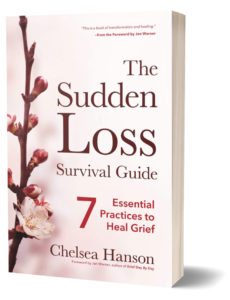What to say and not say at the time of loss?
Many people will undoubtedly say things that will anger or upset you when you are grieving, but they don’t know what to say and not say. And with the increasing number of losses due to the pandemic, I thought now would be a good time to pass on this refresher to share with others:
Here is what you should NOT SAY to those grieving, and what you can DO OR SAY INSTEAD:
- “I know how you feel.” No one can completely understand another’s person distinctive grief or know exactly how he or she feels because you haven’t experienced the same loss. But, you can offer your presence and say, “I’m here by your side.”
You can listen to those hurting without offering answers to their problems. You can witness their suffering without trying to fix it. You can offer hope without trying to use logic to talk the other person out of his or her pain.
- “It could be worse.” Never compare losses. All loss hurts, especially to the person experiencing it. There is no hierarchy of pain or grief. The sadness the bereaved person is feeling is always the most important to him or her. Just as your neighbor’s sorrow is the most valid to him, and yours is to you.
 When we rank grief, we validate some losses and minimize others. This only adds to the mourner’s sorrow and perpetuates the false idea that some loss is worse than others. And in turn, this minimizes grief and magnifies the feelings of being alone. Asking for help then becomes much more difficult for the mourner due to the fear of being dismissed. Instead, validate and acknowledge what’s happening for the person by saying, “I can’t imagine the magnitude of the loss you are feeling.”
When we rank grief, we validate some losses and minimize others. This only adds to the mourner’s sorrow and perpetuates the false idea that some loss is worse than others. And in turn, this minimizes grief and magnifies the feelings of being alone. Asking for help then becomes much more difficult for the mourner due to the fear of being dismissed. Instead, validate and acknowledge what’s happening for the person by saying, “I can’t imagine the magnitude of the loss you are feeling.”
- “Be Strong.” Do not encourage another person to avoid being with their pain. These who are hurting may be urged by well-meaning people, who aren’t familiar with grief to “move on” and “carry on” These platitudes reflect the cultural expectations that grieving should be done quietly, efficiently, and quickly. These unwritten rules do not encourage the expression of pain and impede healthy healing.
Rather than denying, avoiding, or repressing pain, mourners need to explore their unique thoughts and responses in order to accept the reality of loss. Give the person permission to mourn however he or she would like. For example, you can say, “It’s okay to cry. The person you miss is worthy of many tears.”
- “At least he or she is not in pain anymore.” Others should avoid statements that begin with “At least…” These statements do not acknowledge the mourner’s anguish and do not validate the significance of the loss.
When you gently honor and respect death, loss, and grieving, the other person feels seen and accepted. And if your words feel inadequate, it’s better to say nothing.
- “You aren’t given more than you can handle.” When talking to those who have lost a beloved person, it’s best to avoid platitudes because they minimize the length, depth, and intensity of another’s grief.
Mourners often get the message that grief should be handled quietly, quickly, and efficiently. This causes animosity and makes those hurting dig their heels deeper to prove their grief… and love. A more helpful statement is “This sucks, and I love you.”
Extra Tip – Please Do NOT Say:
“Time heals all wounds.” Time alone will not heal grief. Time may soften or even dull pain, however, it is what the bereaved person does with time that is important. Time along with effort, the intention to heal, and the conscious action to mourn will gradually bring peace instead of pain. An active, not passive, approach to healing is essential. Encourage the bereaved person to allow, experience, and express his or her emotions. For example, you could say, “Let’s talk about what’s going on for you.”
When you are the person suffering the loss, try to listen to the love behind the words of others. Others can be well-meaning, but their words may fail them because they simply do not know what to say or do.

Leave a Reply